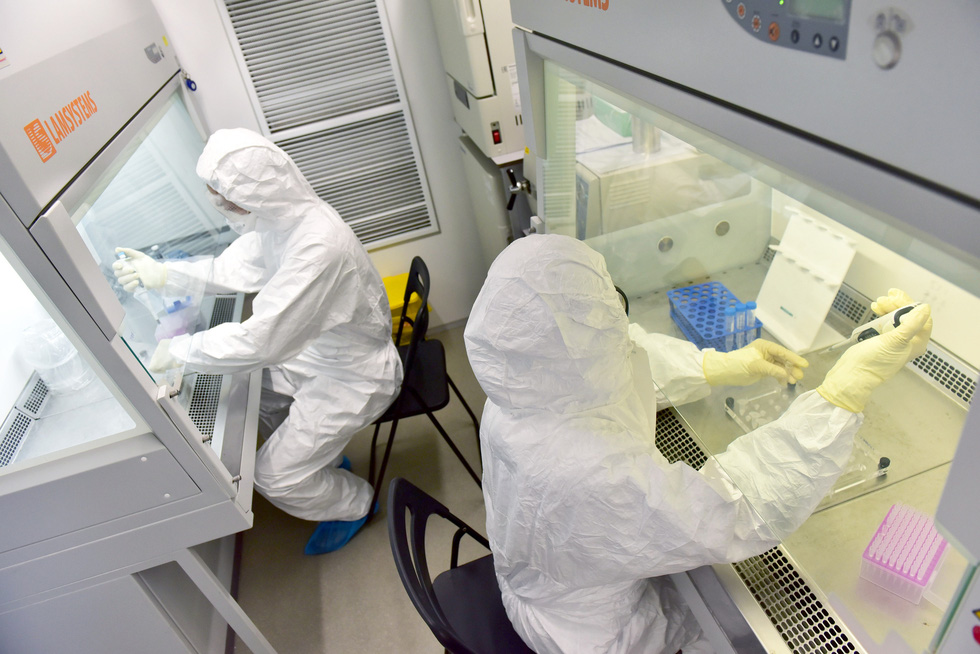The Delta coronavirus variant, first detected in India in late 2020, is sweeping through Southeast Asia, sending many countries, including Vienam, scrambling to shore up their defenses against COVID-19, particularly given the current shortage of vaccines.
Tuoi Tre (Youth) newspaper spoke with Professor Yik Ying Teo, dean of the Saw Swee Hock School of Public Health at the National University of Singapore, via the Internet to learn about how Singapore is faring in its battle against the Delta variant.
Penetrating defenses
After successfully containing the virus for much of the pandemic, Vietnam has found itself facing an outbreak that has, so far, lasted for months. By comparison, Vietnam confirmed less than 2,000 domestic cases in the previous three waves. However, since the fourth round began in late April, Vietnam has detected more than 52,000 local infections. Other countries in the region are also experiencing record numbers of cases and deaths. Can you help us understand what exactly is going on?
My understanding is that the current situation in Vietnam is driven by the Delta variant, which is penetrating quite a lot of the defenses that countries put in place previously. Singapore, Taiwan, Thailand, Vietnam, and Australia have kept the coronavirus at bay for a very long time thanks to their effective public health measures, but the Delta variant is so much more transmissible [than other variants]. I would say that it is not that the public health measures that Vietnam has imposed are ineffective, but that the coronavirus has changed to become better at getting around the measures. This is exactly the reason why a similar situation is happening in many parts of the Asia Pacific right now. Australia, Thailand, and Vietnam are seeing a large outbreak of COVID-19, despite the fact that so many have done very well in the past 18 months since the pandemic began.
Singapore and Vietnam are among the few countries that developed a positive reputation last year due to their abilities to keep their COVID-19 cases low, thanks to strict restrictions and public health measures. But now, in mid-2021, Vietnam is struggling to contain the virus. Do you think Vietnam’s strategy to deal with the virus is still effective? What key measures should it take at this moment?
I think Vietnam and Singapore’s measures are workable. Singapore imposed strict measures in April and May when we saw large spread within the community, so we went back to implement some restrictions on movement, like a form of lockdown. Most importantly, such measures help to ensure a minimum impact on the health of the people as well as on the economy. If we wanted to ignore the economy, we could lock down the entire country for a very long time. Thanks to the lockdown, people are safe and the infection rates have started to decrease. Unfortunately, people are still struggling because they have lost their jobs and don't have money. It is in those istuations that the effects of the lockdown hurt more than being infected with COVID-19.
The long-term plan must always be to focus on how we are going to live with COVID-19. We need to protect the health of our people, but we also need to protect the economy. Lockdown not only causes a big impact on the economy, but it also has a significant mental impact.
For Vietnam, the question is how it plans to effectively use vaccines to protect itself. That will be an important feature of any country's response to COVID-19 moving forward.
What is Singapore’s approach to prevent the spread of the Delta variant?
What we’ve done in Singapore create different layers of measures. The first measure is that we’ve imposed restrictions on people returning to work. The second measure is that we have group size limitations for social and dining activities. At the moment, there are still quite a lot of restrictions in the community, for example restrictions on going to the gym and visiting the cinema.
One of our most important measures is our border control. Singapore requires mandatory quarantine for travelers coming into the city-state, except for those from a few countries. There are also non-pharmaceutical interventions that Singapore put in place, including face mask wearing. Importantly, Singapore now also relies on the use of vaccination. We inoculate people with effective vaccines. Vaccination does not prevent infection completely but it reduces the chance of being infected. And if someone has been vaccinated but still infected, the chance of the person experiencing severe symptoms that require hospital care is much lower.
Our data suggests that being vaccinated with the vaccines we use in Singapore (Pfizer) lowers the chance of being infected by 69 percent. If you're infected, it lowers the chance of severe symptoms by at least 80 percent. So, most of the time, even if you are infected, you have no symptoms or you have very mild symptoms. So, those are all the different layers of protection that we are putting in place. We anticipate that vaccination has been one of the biggest differences in allowing us to build our defenses against the Delta variant.
|
|
| Professor Yik Ying Teo, dean of the Saw Swee Hock School of Public Health at the National University of Singapore. Photo: The Straits Times |
Not time yet for Vietnam to live with COVID-19
Living with COVID-19 has been widely discussed around the world, especially in developed countries with high vaccination rates. Singapore has announced a road map to live with COVID-19 in which it plans to stop counting the number of infections. What do you believe are the conditions for countries like Vietnam to live with the virus?
The main condition is actually related to vaccination. The vaccination rate in the population needs to be at a very high level in order to live with COVID-19. The other requirement is to be able to monitor the effectiveness of the vaccines that have been used, as it is almost certain that there will be new variants and we will need to be able to follow science and data to see whether the vaccines will continue to be effective against the new variants. So living with the coronavirus will rely on vaccination as a way to protect the population, but it also depends on the assumption that vaccines will continue to be effective against emerging variants.
Singapore’s decision to stop counting the number of infections is something that has caught the attention of international news. Our ministers made a statement about how we may potentially move to the stage of tracking “not the infection numbers but the hospitalization numbers.”
I personally think it is very important to understand the context of this decision. Presently, Singapore tracks the number of people who have been infected. Once the number of vaccinated people in Singapore becomes high enough (maybe 70 to 80 percent) and we have epidemiological proof that vaccines protect people against severe outcomes of the disease, we will stop counting the numbers.
Right now, we are starting to see the evidence that vaccination protects against severe symptoms and deaths. That is very important information because once we see that vaccines are effective against severe symptoms, we will be able to stop worrying about infection numbers.
For example, if we have 100 people infected today but they have mild symptoms and little chance of infecting others because the majority of people around them are vaccinated, the news will say “100 people infected today,” which might make people feel as if the numbers are not as serious as before. In order for us to move to that stage, we must have a high vaccination rate in the population.
I believe that with the use of effective vaccines, we can reduce COVID-19 to a point where we consider it similar to the flu. I anticipate that by the end of this year Singapore will relax border restrictions.
If Vietnam has a low rate of vaccination (over four million doses of vaccine have so far been administered), then it won’t be possible to say that the country can live with COVID-19. Living with it means many people in the population are protected from the short-term and long-term health effects of infection.
Some countries are following a policy of suppressing COVID-19 with lockdowns until a vaccine is available, with the goal of no community transmission, or zero-COVID. Do you think the strategy is still possible as new variants, including the Delta, continue to emerge?
It depends on how strict the lockdown is and whether or not people choose to follow it. There are some countries in Southeast Asia with lockdowns, but those lockdowns are not strictly enforced, and if there is no real enforcement, then it is not effective.
Second, the Delta variant is so much more transmissible. If you enforce a two-week lockdown, what is likely to happen is that people will start to infect household members. Some of the people may actually end up with no symptoms or very mild symptoms, and they don't even know they are infected. And if they are the ones going out to buy food, despite the lockdown, they may infect others even though it is at a very low rate.
So my concern is that a two-week lockdown may not be sufficient. So even for Singapore, when we imposed stricter measures in May, these stricter measures were imposed for many weeks before we lifted some of the restrictions.
Like us on Facebook or follow us on Twitter to get the latest news about Vietnam!





















































